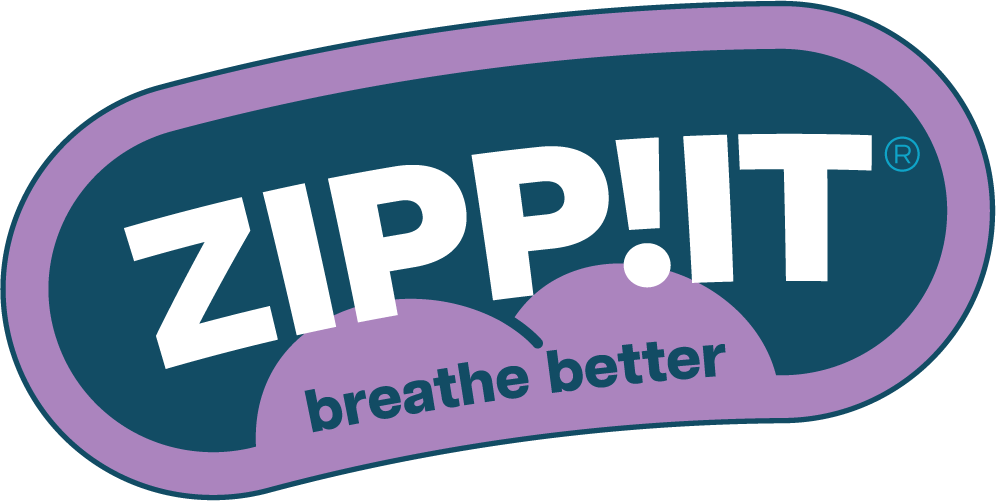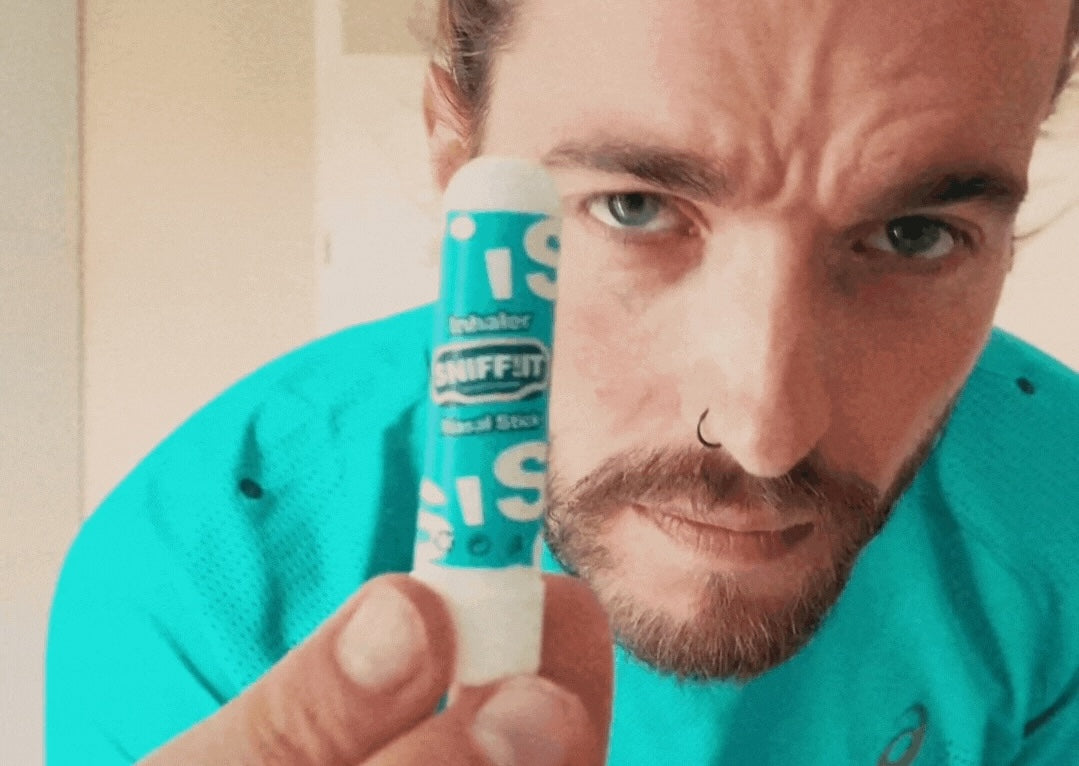How mouth tape contributes to better recovery during your sleep cycle
Mouth tape is a simple yet powerful method that is gaining increasing attention in the world of sleep improvement.
This small strip of tape over your mouth ensures that you breathe through your nose while sleeping, which brings surprisingly significant benefits. Your body can recover better, you sleep more deeply, and you wake up feeling more refreshed. In this article, you'll discover exactly how mouth tape works and what it can mean for your night's rest.
We’ll dive into the effects on your REM sleep, your breathing technique, and how it optimizes your recovery hormones. We’ll also provide practical tips for beginners and answer frequently asked questions about this simple yet effective method. Are you ready to take your sleep quality to the next level?

The Science Behind Mouth Tape and Nasal Breathing
Did you know your body is naturally designed to breathe through your nose? Your nose is an amazing filtration system that cleans, warms, and humidifies air before it reaches your lungs.
Additionally, your nose produces nitric oxide, a substance that dilates your blood vessels and improves oxygen uptake. Mouth tape helps maintain this natural way of breathing while you sleep.
Many people unconsciously breathe through their mouth at night, which can cause several problems:
-
Dryness of the mouth and throat
-
Increased risk of snoring and sleep apnea
-
Reduced oxygen uptake
-
Disturbed sleep quality
-
Less efficient recovery
Research shows that nasal breathing during sleep improves your sleep pattern. It helps stabilize the different sleep stages, including the crucial deep sleep and REM sleep. These phases are essential for physical and mental recovery.
The mouth tape technique is simple but effective: the tape keeps your mouth closed, causing you to breathe automatically through your nose. This leads to a more regular breathing pattern and better oxygen delivery to all tissues in your body, which directly benefits your recovery processes during the night.
Mouth Tape and Its Relationship with REM Sleep and Recovery
During REM sleep (Rapid Eye Movement), your brain is highly active. In this phase, your brain processes information, consolidates memories, and emotional processing takes place. Mouth tape has significant effects on this phase, as stable oxygen supply is essential for optimal brain activity.
When you breathe through your mouth, it can lead to fluctuations in oxygen levels, which disrupts your REM sleep. With mouth tape, many people experience:
-
Longer periods of uninterrupted REM sleep
-
Deeper sleep stages
-
Waking up less often
-
Better dream recall (a sign of good REM sleep)
The quality of your REM sleep directly affects your cognitive function during the day. Users of mouth tape often report improved concentration, better memory, more stable mood, and faster mental recovery after intense days.
Also, during the deep sleep phases, when your body physically recovers, nasal breathing plays an important role. Processes such as tissue repair, muscle recovery, and replenishment of energy reserves occur in these phases. Optimal oxygen uptake can significantly improve these processes.
Interestingly, many top athletes and coaches have discovered mouth tape as a simple yet effective tool to maximize their recovery after intensive training sessions.
The Impact of Mouth Tape on Recovery Hormones and Oxygen Uptake
During your sleep, your body produces important recovery hormones such as growth hormone and melatonin. These play a crucial role in tissue repair, immune function, and regulating your biological clock.
Breathing patterns directly influence your hormonal balance. Mouth breathing often activates your 'fight-or-flight' response, which can increase cortisol (stress hormone) and inhibit the production of recovery hormones. Nasal breathing, on the other hand, stimulates your 'rest-and-digest' mode, which is beneficial for the production of recovery hormones.
Here are some key effects of mouth tape on your hormonal system:
-
Improved melatonin production for a more natural sleep-wake cycle
-
Optimized growth hormone release for tissue repair
-
Reduced cortisol levels during the night
-
More stable insulin sensitivity
Oxygen uptake during sleep is another important aspect. Oxygen is the fuel for all recovery processes in your body. Optimal oxygen supply ensures more efficient energy production, faster removal of waste products, better tissue regeneration, and a stronger immune system.
Clinical observations show that people who use mouth tape often have improved oxygen saturation during sleep. This is especially relevant for people with mild sleep apnea, athletes who want to recover maximally, the elderly, and those with chronic fatigue complaints.
The effect of mouth tape on recovery hormones and oxygen uptake can vary from person to person. Some notice a difference after just one night, while others need a few weeks to experience the full effect.
Practical Tips for Using Mouth Tape
Want to start using Zippit mouth tape? Here are some practical guidelines:
For beginners:
-
Start slowly – Begin with short periods during the day to get used to it
-
Choose the right tape – Use products specifically designed for mouth taping
-
Prepare your lips – Apply lip balm to prevent irritation
-
Start halfway – First place the tape over part of your mouth
-
Build it up – Gradually increase the time until you’re comfortable
Proper placement technique:
-
Make sure your lips are gently closed, not pressed together
-
Place the tape horizontally over both lips
-
Avoid folds or creases in the tape
-
Check that you can still swallow
When NOT to use mouth tape:
-
When you have a cold or a blocked nose
-
If you have breathing problems without medical advice
-
After consuming alcohol
-
For children under 5 years old
-
If you experience feelings of claustrophobia
Most people need about 1-2 weeks to fully get used to sleeping with mouth tape. During this period, you can keep a sleep log where you note aspects such as sleep quality, dream recall, how rested you feel, and your energy level throughout the day.

The Scientific Basis for Mouth Tape and Sleep Recovery
The interest in mouth tape is not just based on personal experiences. Increasingly, scientific research supports the benefits of nasal breathing during sleep.
Dr. Patrick McKeown, an authority in the field of breathing techniques, emphasizes: "Nasal breathing activates the production of nitric oxide, which is crucial for vasodilation and oxygen transport. This has direct implications for recovery processes during sleep."
Studies show that nasal breathing is associated with:
-
Improved heart rate variability
-
Reduced sleep disturbances
-
More efficient carbon dioxide exchange
-
Positive effects on the upper airways
Mouth tape helps maintain a stable sleep architecture, ensuring all phases of the sleep cycle are sufficiently represented. This is essential because each sleep phase has specific recovery functions, from light sleep to deep sleep and REM sleep.
It’s important to emphasize that mouth tape is not a miracle cure, but a tool that can be part of a broader approach to sleep optimization, together with a regular sleep schedule, a calm sleep environment, and avoiding blue light in the evening hours.
Start Using Mouth Tape Today for Optimal Recovery
Now that you understand how mouth tape can contribute to better recovery during your sleep cycle, it’s time to experience this simple yet effective technique for yourself.
Many people notice a difference in their sleep quality and how rested they feel after just a few nights. Stimulating nasal breathing not only has direct effects on your sleep, but also offers broader health benefits such as improved daytime breathing efficiency and reduced mouth-related problems.
To get started, we recommend:
-
Purchasing a specifically designed mouth tape
-
Patiently going through the adjustment period
-
Being consistent in your use
-
Experimenting with different types
-
Monitoring the effects
Quality sleep is one of the most important pillars of your health. It affects your mental clarity, emotional balance, physical performance, and even your immune system. By incorporating a simple adjustment like mouth tape into your nightly routine, you invest in all these aspects of your well-being.
Start tonight and experience the difference nasal breathing can make for your sleep quality and daily functioning!


